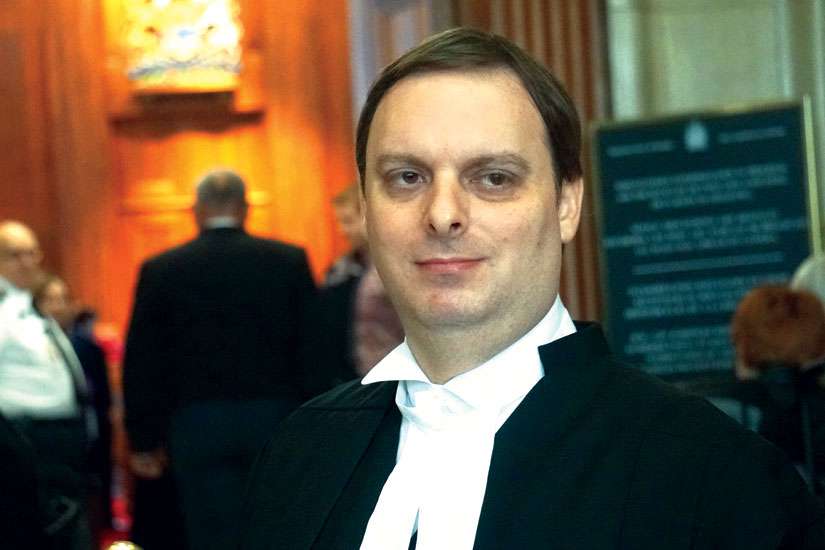Euthanasia Prevention Coalition’s legal counsel Hugh Scher said it is important to have a bill that addresses the Supreme Court’s Carter decision with “comprehensive safeguards to protect vulnerable people from the risk of abuse.”
“The existing bill does not do that,” he said. The bill provides “little or no safeguards and no effective oversight,” and it does not provide for a prior review by a judge or a tribunal. Scher wants to see the bill improved to provide adequate safeguards and oversight.
“Failing that we may be better off with no bill and simply have litigation over specific issues,” he said.
But Catholic Civil Rights League president and constitutional lawyer Phil Horgan has said Bill C-14, as it stands, is “a worse proposal” than having no law passed by June 6.
Under the Supreme Court decision in the Carter case, only physicians would be allowed to provide assisted death, not nurse practitioners, as Bill C-14 would allow. Also, Bill C-14 would leave the Criminal Code’s section on administration of a noxious substance in place, Horgan said, allowing anyone to help a patient take a lethal drug that was obtained by subscription.
But Alberta-based Constitutional lawyer Gerry Chipeur, who opposes euthanasia and assisted suicide, warns that without the bill Canada will be left with a legal vacuum similar to that on abortion.
“Nothing could be more critical than getting this bill passed,” Chipeur said. “This bill is a tremendous bill, much more restrictive than Carter.”
He noted a recent Alberta Court of Appeal interpretation of the Carter decision means “without federal legislation” there will be “carte blanche to physicians to kill everyone.”
“Under Carter as interpreted by the Court of Appeal, in the absence of federal legislation, 100 per cent of the population is at risk of being killed by their physician or their nurse,” Chipeur said.
Under Bill C-14, the number qualified to be killed by their caregiver is less than one per cent, he said.
Even with the present wording, Bill C-14 limits access to assisted death to those at end of life, Chipeur said.
“That is the most significant limitation one can imagine. It means the person is going to be dead anyway within a few months, so the potential for abuse is extremely limited.”
“When the choice is between a regime like abortion-on-demand and a regime that protects 99.9 per cent of citizens, there is nothing to talk about,” he said, although he hopes the Senate will pass some amendments to make the bill even stronger.
Chipeur believes Bill C-14 creates a necessary framework that sets out how provinces and territories can regulate the way “physicians and nurses interact with their patients at the end of life.”
“C-14 creates the floor upon which you put the furniture of a hospital system that is going to deal with end-of-life care,” he said. The provinces and territories cannot legislate the criminal law, he stressed.
“In the absence of a floor, there is no place to put the furniture,” he said. “It is critical to have a federal strong bright line,” and then “build a provincial regime.”

